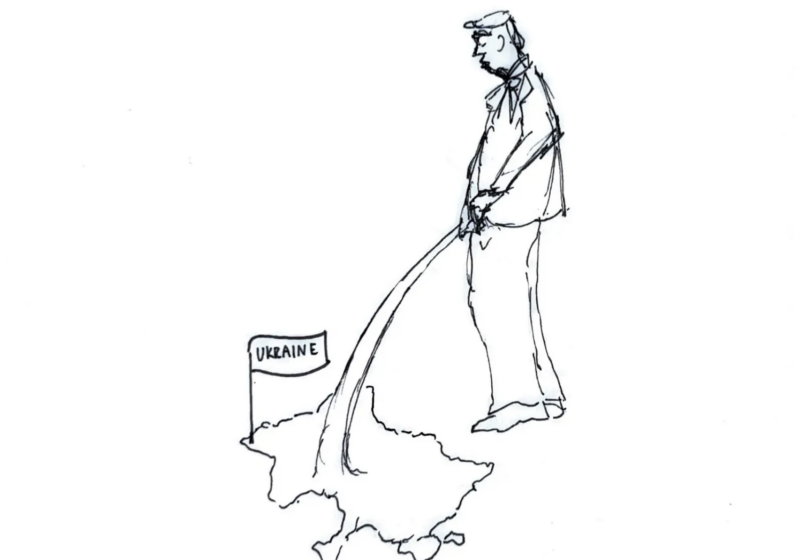As the New York State fire code has tightened, many students and groups have had to change their routines and upgrade their buildings to meet the new higher standards.
Director of Residential Life Logan Hazen has worked to inform students of the new rules. “We know it’s coming,” he said. “We were hoping to get as much clarity to you, the students, as we can.”
Hazen and Residential Life have been working closely with the Fire Marshal’s office on these changes. Their role is mostly that of an intermediary between the New York state government and the student body. “We’re working with them,” he said. “What we do best is education, so we’re trying to educate our students about what is acceptable and what is not acceptable.”
Hazen was happy with how the Fire Marshal had been working with UR. “Our fire marshal has been working really hard, he’s been doing a good job,” he said.
Mark Cavanaugh, Director of Environmental Health and Safety and UR Fire Marshal, distributed a letter to the university community in November. The letter said that specific information was not yet ready, but students should assume that George Foreman grills, candles, decorative lights and many other potential fire hazards are not permitted in their rooms.
Though specific plans for renovations and upgrades have not yet been made, ResLife knows it will be a major undertaking. “It’s a multi-year project,” Hazen said. “We would like to get something started this summer.”
In many cases, upgrades like adding sprinkler systems or fire escapes might be necessary. “That will be a million dollar project to get done,” Hazen said.
ResLife is aware that these changes could cause problems for the UR community. Hazen said they will try to minimize negative effects. “We don’t want to be running sprinkler systems in November in residence halls,” he said.
Many of the new requirements have affected student groups’ activities. For example, the Tiernan Project and Alpha Phi Omega hold a Halloween party every year, but an important part of the event had to be cancelled.
“The haunted hallway is part of our annual Halloween party for disadvantaged children,” senior and Tiernan Project president Katye Blackwell said. “We would take a hall in a dorm [and] use black lights and stuff to make it kind of scary. I heard from the adviser that the fire marshal said something like the haunted hallway couldn’t be done.”
Decorations for the haunted hallway, such as spider webs and colored paper over lights, were considered fire hazards. “Last year we used some mattresses to [make the hall] so it wasn’t just straight down, they had to weave through them,” Blackwell said. “We covered up the lights, that had something to do with it.”
Hazen admitted that it was impossible to give clear and complete instructions at this point. “It’s so new it’s a little frustrating trying to get it all down.”
Some of the rules have seemed nonsensical. “You can have rice cookers but you can’t have crock pots,” Hazen said.
Many, like Blackwell, have been confused by vague or last-minute rules. “[Student groups] come to us and ask, ‘Can you give us some clarification?'” Hazen said.
But he also said that a little confusion was inevitable. “Whenever new codes come out, it’s really in the implications, the guidelines, that the details come out,” he said. “It’ll never be perfectly tight and clean because things change, new appliances come out.”
A stricter fire code has already had an effect on some students. As of September, student groups were no longer able to use the Drama House for performances due to new limitations on occupancy, and a new fire escape will be needed to added to the building.
And in order to keep their kitchens usable, most fraternities have plans to make improvements, or have already done so. “Several of their kitchens had to be upgraded,” Hazen said. “But that process started years ago.”
Despite the difficulties, the changes themselves are inevitable. “I know this is a state law, and we have to conform to it,” Dean of The College William Green said.
The changes UR must make are more sweeping than those required at some other nearby colleges. “Like anything else, sometimes you get more rigid inspections from one school to another,” Hazen said.
Nazareth College, for example, already had relatively strict and detailed fire safety regulations, so few changes were needed to meet the new standards.
No one has faced disciplinary charges for violating the new regulations. “If you do anything that’s already on the books, you would have been sent to the appropriate judiciary level,” Hazen said.
Of course, Hazen said that is partly simply because there have been few problems with fires in general. “Knock on wood, we haven’t had a lot of [fires] this year.”
Hazen explained that UR was trying to help students who owned appliances which would become illegal. “We’ve identified storage areas, so that if there are things that are illegal that students can’t take home right away, we have storage space.”
Even though exact details are not yet available, Hazen has an idea of how the many changes and upgrades will go. “If you’ve got Foreman stock, sell it,” he said.
Levesque can be reached at clevesque@campustimes.org.





